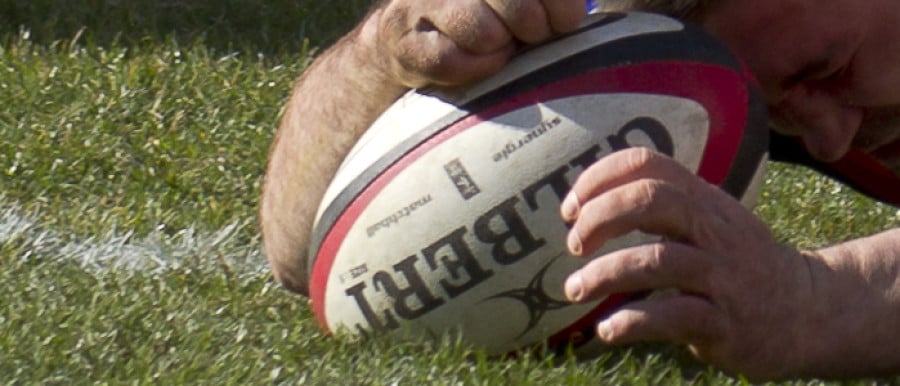How doping offences are reduced under WADA Article 10.5.4

Background to reductions on bans
Since the introduction of Article 10.5.4, ‘Reduction of period of ineligibility based on admission of an Anti-Doping Rule Violation in the absence of other evidence’, in the 2009 WADA World Anti-Doping Code1 (2009 Code), an athlete has been entitled to a reduction in his ban of up to half, if he admits the offence before he is, or is likely, to be caught. These cases fall into two main categories.
First, there is the athlete who is doping and admits to the authorities, before he is caught, that he is doping. This could be an athlete who spontaneously goes to the authorities to admit their use of banned substances, motivated by guilty consciences, or as in the case of RFU v. Bradley Parker 2 (Parker - which we return to later below), where the player was confronted by his coach and admitted to taking banned substances. The common factor in both of these scenarios is that there would have been no evidence of an offence unless the players admitted to the offences.
Secondly, there is an admission where a procedural offence such as evasion or tampering has occurred and that admission is the only reliable evidence of the violation at the time of the admission. In these cases, the Anti-Doping authorities will usually be aware that an offence has taken place, and will have begun an investigation into the offence, but will not know the identity of the offender.
Two examples of the second category have recently been in the courts: UK Anti-Doping v. Danso andOffiah (Offiah)3 and UK Anti-Doping v. Kolasa (Kolasa)4 (see below). Each case discussed the application of Article 10.5.4.5 Specifically, the court looked at (i) the legal test that applies, and (ii) the weight that can be attached to the Commentary to the Articles (see below) when considering the merit of a case.
I will deal with these two issues below; along with a brief word on the amount a ban should be reduced if the sentence is reduced at the end.
The Articles under the 2009 Code
Article 10.5.4 of the 2009 Code states:
“Admission of an Anti-Doping Rule Violation in the Absence of Other Evidence
Where an Athlete or other Person voluntarily admits the commission of an anti-doping rule violation before having received notice of a Sample collection which could establish an anti-doping rule violation (or, in the case of an anti-doping rule violation other than Article 2.1, before receiving first notice of the admitted violation pursuant to Article 7) and that admission is the only reliable evidence of the violation at the time of admission, then the period of Ineligibility may be reduced, but not below one-half of the period of Ineligibility otherwise applicable” (Underlining added, as we will return to the phrase below).
The commentary to Article 10.5.4 states:
“This Article is intended to apply when an Athlete or other Person comes forward and admits to an anti-doping Article violation in circumstances where no Anti-Doping Organization is aware that an anti-doping Article violation might have been committed. It is not intended to apply to circumstance where the admission occurs after the Athlete or other Person believes he or she is about to be caught.” (the “Commentary”).
The cases of Offiah and Kolasa.
The only live point in the cases of Offiah and Kolasa were whether the investigatory panels were going to reduce their respective bans under Article 10.5.4. In both cases the athletes had accepted that they had committed an offence.
Two key issues arose and were discussed in the judgements concerning the application of Article 10.5.4:
- Issue 1 - How should the “only reliable evidence” test be approached?
- Issue 2 - How should the Commentary be applied to this type of case, if at all?
Facts of Offiah
Mr Offiah was a Basketball player for PAWS Capitals, a team in the English Basketball League. He was 29 at the time of the incident, had a long record of playing the sport at a high level, and was a qualified disabilities coach. He was charged along with Mr Danso who, was not registered for the team, and was playing as a stand in on the night of the incident.
On the night of the incident the coach was running late, so Mr Offiah was asked to act as the team bus driver, and to handle the players’ licenses, which contained the players’ registration details for the team and without which they could not play. This was the first time Mr Offiah had handled the licenses. When Mr Offiah got to the venue in Brentford, he was told that the team would be subject to in competition anti-doping testing.
The licences were handed to the testing team by a young ball boy. After the game, the coach still having not arrived, Mr Offiah was deemed the “designated person”, namely the person responsible for confirming that when a license was picked, the correct player then took the test. Mr Danso was playing under the registration of another player, as he did not have his own registration. The registration of the other player was picked. Mr Offiah falsely confirmed that Mr Danso was actually the other player. Mr Danso was then tested. His test came back positive for cannabis.
UK Anti-Doping (UKAD) interviewed the man whose license had been used. He stated he was not playing that night. They then interviewed Mr Offiah who made a full confession and admitted his part in falsely identifying the player. Mr Offiah was then charged along with Mr Danso by UKAD. Mr Danso was not interviewed and had not cooperated in any way with the investigation. Mr Danso did not appear at the hearing and received a two-year ban. We will return to consider the question of Mr Offiah’s ban below.
Facts of Kolasa
Mr Kolasa was a young Rugby League player at London Skolars, a team playing in the third level of Rugby League. He was studying at college at the time of the incident, and training with the first team of London Skolars. It was his first season on a professional contract and he had not received any training on Anti-Doping issues.
On the 21 August 2013, at a London Skolars evening training session, UK Anti-Doping attended to complete Out of Competition testing. Mr Kolasa seeing the test team went back to the changing rooms with the team, and then rather than waiting for the test to take place, put his motorcycle helmet on and left via a back stair well. As he was walking to his motor scooter a tester tried to stop him and asked him who he was. He ignored him and drove off.
The Coach of London Skolars told the testers that the person who had left was Mr Kolasa. No formal Identification parade was carried out, but it was detailed in the testers report that the coach had identified Mr Kolasa. Mr Kolasa was the only player who was listed as present but was not registered as present by the testers.
To continue reading or watching login or register here
Already a member? Sign in
Get access to all of the expert analysis and commentary at LawInSport including articles, webinars, conference videos and podcast transcripts. Find out more here.
- Tags: Anti-Doping | Basketball | England | Rugby | UK Anti-Doping (UKAD) | World Anti-Doping Agency (WADA) | World Anti-Doping Code (WADC)
Related Articles
- WADA Article 10.4 "specified substances" - the end of the farce?
- WADA - Amended 2014 Prohibited List in force September 1
- WADA publishes first ever Athlete Reference Guide to the Code
- A player friendly approach to anti-doping violations - the “Kolasa” case
Written by
Barnaby Hone
Barnaby Hone is a barrister, practising from One Paper Buildings, specialising in Criminal and Professional Discipline. He has particular expertise in Sports and Anti-Doping matters. He appeared as counsel for both Mr Offiah and Mr Kolasa. He also sits on the RFU Anti-Doping Judicial Panel.

 Global Summit 2024
Global Summit 2024